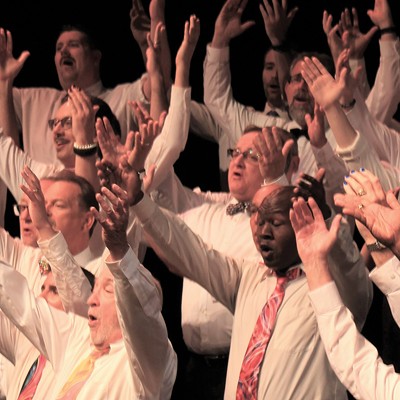The issue of the delicate nature of what can be bought and sold—goods, services, souls, elections—is flashed across our video screens and smacks us as we read our newspapers. Thus, George Bernard Shaw's Major Barbara is as incisive and provocative now as it was in 1905, when it was first produced.
The Rogue Theatre deserves kudos for tackling such a piece, launching its new season with the characteristic courage which propels the company to offer plays of substance. Though the play is weighty, the group's choreography of Shaw's work makes the material surprisingly light while revealing the often-biting and always-smart wit of a playwright at his peak. It is as funny as it is thoughtful.
The play digs into the morass of how we negotiate the economics of power and reckon with the strange bedfellows of money and charity. Shaw posits that there exists great irony in what we offer for a price, and by what means we sell it—and that there could be inherent evil coexisting with the potential for positive consequences in these transactions.
At the play's opening, Lady Undershaft (Cynthia Meier) determines to ask her ex-husband, the father of her children, to supply funds to support their two daughters. Andrew Undershaft (Joseph McGrath) is a wealthy, and therefore powerful, tycoon, having made his millions by manufacturing weapons of war and selling them to the highest bidders. Barbara (Marissa Garcia), a major in the Salvation Army, scoffs at the immorality of her father's enterprise, while he scoffs at the hypocrisy of hers.
When Undershaft learns that a distiller of whiskey has offered to donate a hefty sum to fund the Salvation Army's work if matching funds can be found, he offers to pay what is needed to receive the distiller's money. Barbara is appalled that the group would accept support from those who manufacture the things it abhors—alcohol and murder and mayhem. She feels the group would be hypocritical by accepting the money, but her superiors see no problem with taking the funds. Disillusioned, Barbara leaves the group.
When she visits her father's place of business, she has another conversion: She acknowledges the good of giving people employment, and lifting them from poverty so they can contribute in positive ways to society. Consequently, they avoid the plight of those to whom she has ministered.
This is a wonderfully rich script, both in language and content, and the Rogue succeeds in delivering both. The cast is capable, although there are some weaknesses which result in a rough patch or two, distracting from but never derailing the story.
This is a big show with big production requirements—like period costumes—and the Rogue's staff comes through admirably. The major roles are all represented well, and the supporting cast does an admirable-enough job. McGrath and Matt Bowdren, who plays Barbara's intended, both excel in creating characterizations that give voice to the numerous philosophical points of view which are the meat of the piece.
Any student of the theater owes it to themselves to see this piece: It is well-delivered evidence of Shaw's contributions to English theater. And for those who love a lively discussion of ideas put forward by smartly drawn characters in a cleverly devised story, Major Barbara is just your cup of tea.
A couple of miles away, Beowulf Alley Theatre Company has also unveiled its first show of the new season.
Rough Crossing is a play by a contemporary English playwright, Tom Stoppard, but this play is a departure from most of Stoppard's work. First, it is an adaptation; Ferenc Molnár penned the original farce in the early part of the 20th century. Secondly, the play is pure confection. Although it showcases Stoppard's great facility with language, it has not a whit of the teasingly complex ideas which are so characteristic of his playmaking.
Unfortunately, Beowulf Alley's production reveals nothing of the lively spirit with which Stoppard tells his tale. As directed by Dave Sewell, the production is a tedious and lengthy ordeal. Although the potential for humor and laughs aplenty is imbedded in the script, the group does not provide the spark which would light the fuse of Stoppard's comedic charm.
Aboard a cruise ship bound for New York, a playwriting duo and their young composer realize that the show they are supposed to have ready when they arrive is in serious disrepair. But the composer has
been stricken with a serious case of stuttering—and love—and it appears that the object of his love has been stolen by the leading man. The story shows us how these problems are sorted out.
The style of Stoppard's comedy requires a director's tight, concise approach to help his actors realize crisp characterizations which drive the action. For the show to be successful, actors possessing particular skills in physical comedy are absolutely necessary. It becomes obvious early on that these qualities are absent here. The actors approach their work with an enthusiastic effort, but the piece is beyond their ability.
To make matters worse, the weak energy is dragged down further by lengthy and complicated set changes which erase any momentum that the story might have been building.
Beowulf Alley has no artistic director; rather, there is a committee which decides which plays will constitute a season. This observation is relevant, because a single voice and vision guiding the direction of this theater might have looked at the script and the resources available to produce it, and said, "No, this is a bit beyond our capabilities right now. Let's wait."
But such a voice does not exist, and Rough Crossing is the unhappy result.








